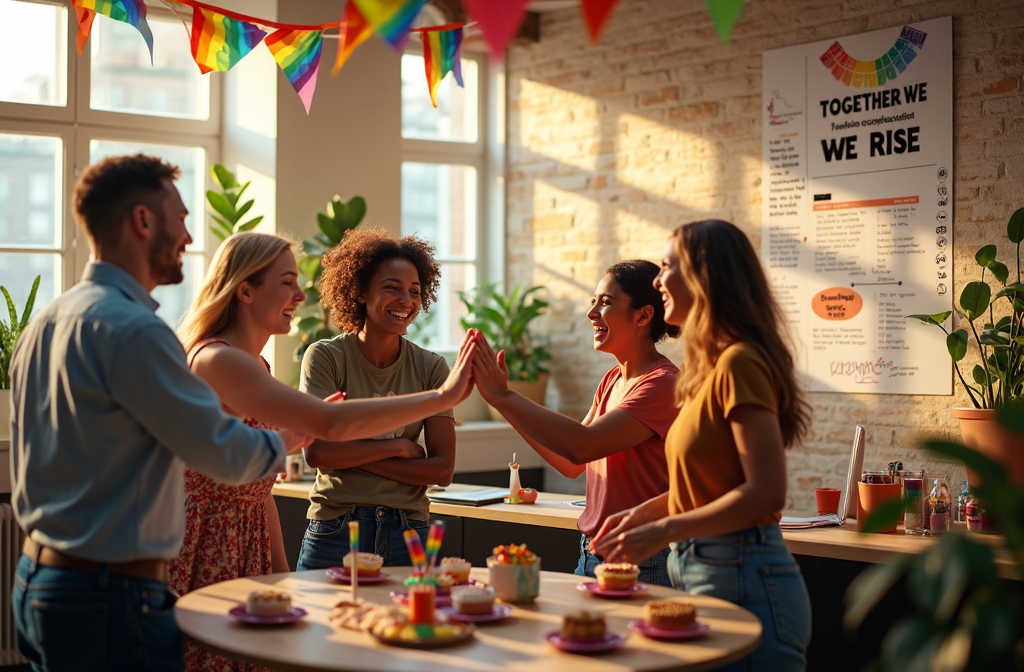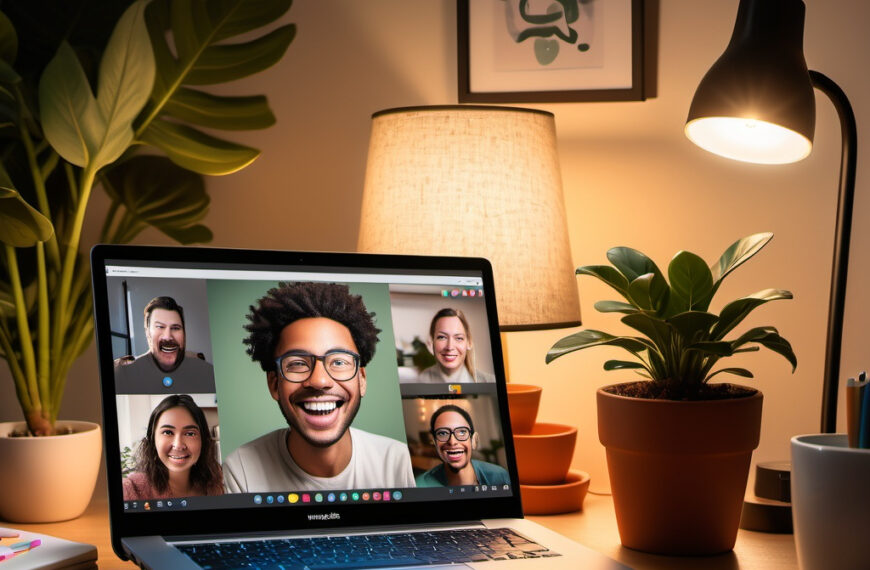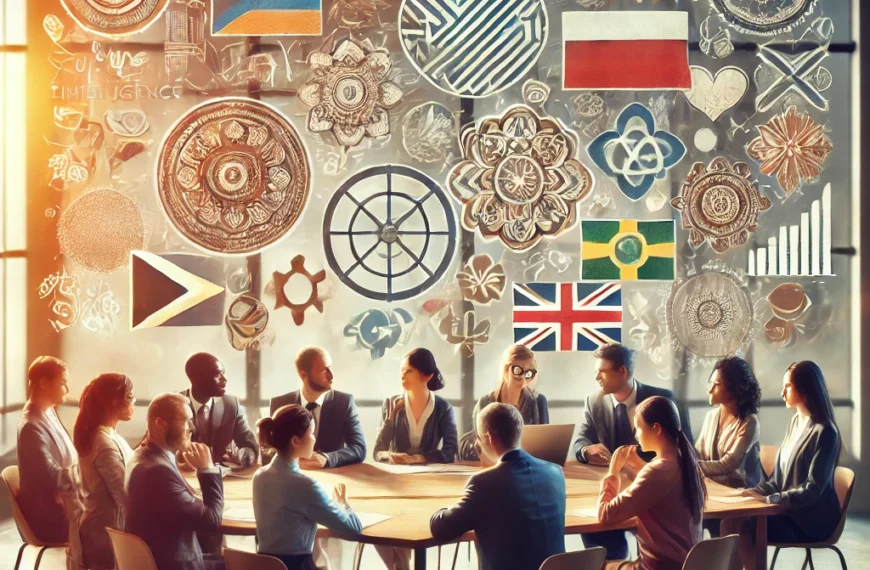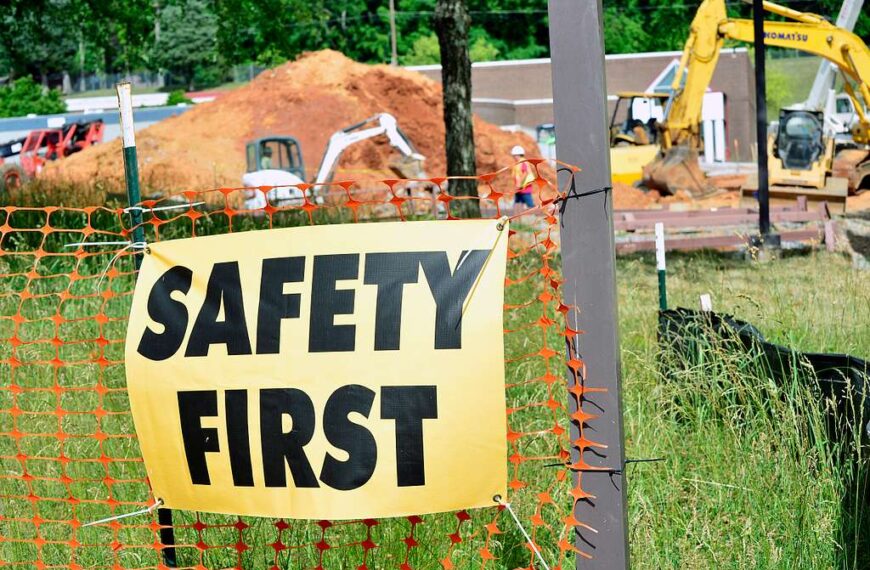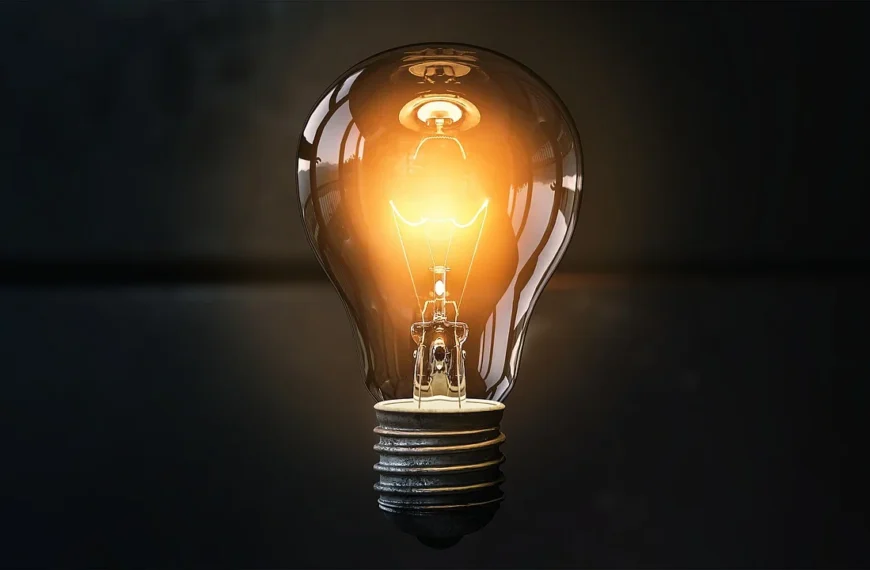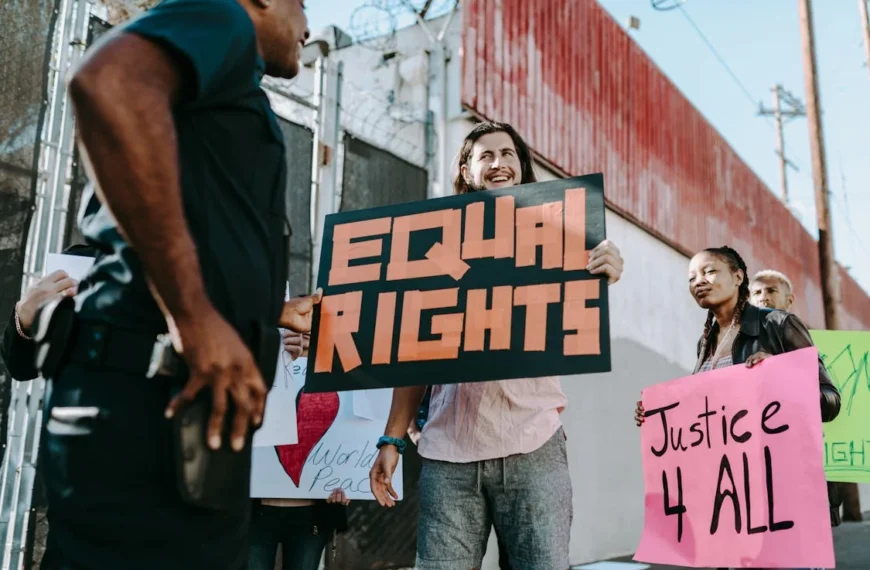Introduction
Have you ever seen someone go quiet after being misgendered? Or watched a joke land that clearly made someone uncomfortable, but no one said anything?
These are the small, everyday moments where allyship matters most.
Allyship is more than showing support during Pride Month or posting a flag. It is built on consistency, courage and action. While awareness is important, genuine allyship is something we do, not just something we believe in.
What Is Allyship?
Being an ally means actively supporting people from marginalised groups, not only when it is convenient but all the time.
It involves using your voice to uplift others, your position to open doors, and your willingness to learn from mistakes.
Allyship is crucial for LGBTQ+ people, but it is just as important for anyone who holds a protected characteristic. These include disability, age, gender, religion or belief, race and more. Whether in the workplace or in everyday life, allyship helps build spaces where everyone feels respected, included and safe.
Understanding Privilege
Privilege means that some parts of your identity do not make life more difficult. You might have privilege because you are cisgender, white, non-disabled or financially secure.
This does not mean your life has been easy. It simply means that there are certain obstacles you have not had to face. For example:
- If you are cisgender, you have probably never been questioned about which toilet you are allowed to use.
- If you are straight, you may not have worried about mentioning your partner at work.
- If you are non-disabled, you have likely moved through public spaces without needing to check for accessibility.
Recognising your privilege allows you to see where others might be excluded, and gives you the chance to take meaningful action.
Using Privilege to Make a Difference
Once you have acknowledged your privilege, the next step is to use it to support others. This could involve:
- Speaking up when someone is ignored or spoken over
- Backing a colleague who is being excluded from opportunities
- Challenging decisions or behaviours that disadvantage certain groups
You can also support others through mentoring and sponsorship:
- Mentoring is about sharing your time, knowledge and experience to help someone grow.
- Sponsorship means actively putting someone forward for opportunities and advocating for them when they are not present.
Sponsorship can be life changing for people who are often overlooked, including LGBTQ+ individuals, disabled people and those from ethnic minority backgrounds.
Calling Out and Calling In
At some point, you might witness behaviour that is inappropriate or harmful. It might be a joke, a comment, or someone being misgendered.
Allies have a role to play in addressing these situations. There are two common approaches:
- Calling out is direct and usually happens in public. It can be useful when the behaviour is repeated or clearly unacceptable.
- Calling in is more private and focuses on education. It works well when someone is likely to reflect and learn.
For example:
- “That comment was not appropriate. Let’s keep things respectful.”
- “I would like to speak to you about something you said earlier. It may have come across differently than you intended.”
The goal is not to shame someone, but to make it clear that respect is essential. Remember that marginalised people are not always in a safe position to challenge behaviour themselves. This is where the actions of allies are especially important.
The Mental Health Impact of Discrimination
Discrimination does not only hurt in the moment. It can have a lasting impact on mental health.
For LGBTQ+ people, and particularly for those who are also disabled, neurodivergent or from minority backgrounds, exclusion and prejudice can lead to increased levels of stress, anxiety and depression.
For example, trans people often face significant barriers in healthcare, employment and daily life. Constantly having to defend your identity can lead to isolation and exhaustion.
As an ally, offering support, listening and showing empathy can make a meaningful difference. Even simple gestures like using correct names and pronouns or advocating for more inclusive policies help reduce the emotional burden on others.
It is also important to note that organisations have a responsibility to provide accessible, inclusive mental health support and ensure that discriminatory behaviour is not accepted.
Everyday Allyship Is the Goal
Allyship is not about being perfect. It is about being consistent, thoughtful and open to growth.
Here are some questions to help guide your daily actions:
- Who do I support, mentor or advocate for?
- Whose voices am I making space for?
- What assumptions do I need to unlearn?
- How do my decisions include or exclude others?
Even the smallest actions, such as including someone in a conversation, challenging a biased joke or creating space for quieter voices, help build a more inclusive environment.
Conclusion
Being an ally is not about grand gestures. It is about steady, reliable action grounded in respect and empathy. It means using your position, your voice and your choices to create a fairer world for those who do not always have the same opportunities.
Allyship is needed far beyond Pride Month. It is needed in boardrooms, classrooms, interviews, conversations and policies. It is needed wherever people are left out or pushed aside.
You do not have to be an expert. You do not have to get it right every time. But if you are willing to listen, learn and show up, you already have what it takes to be an ally.
